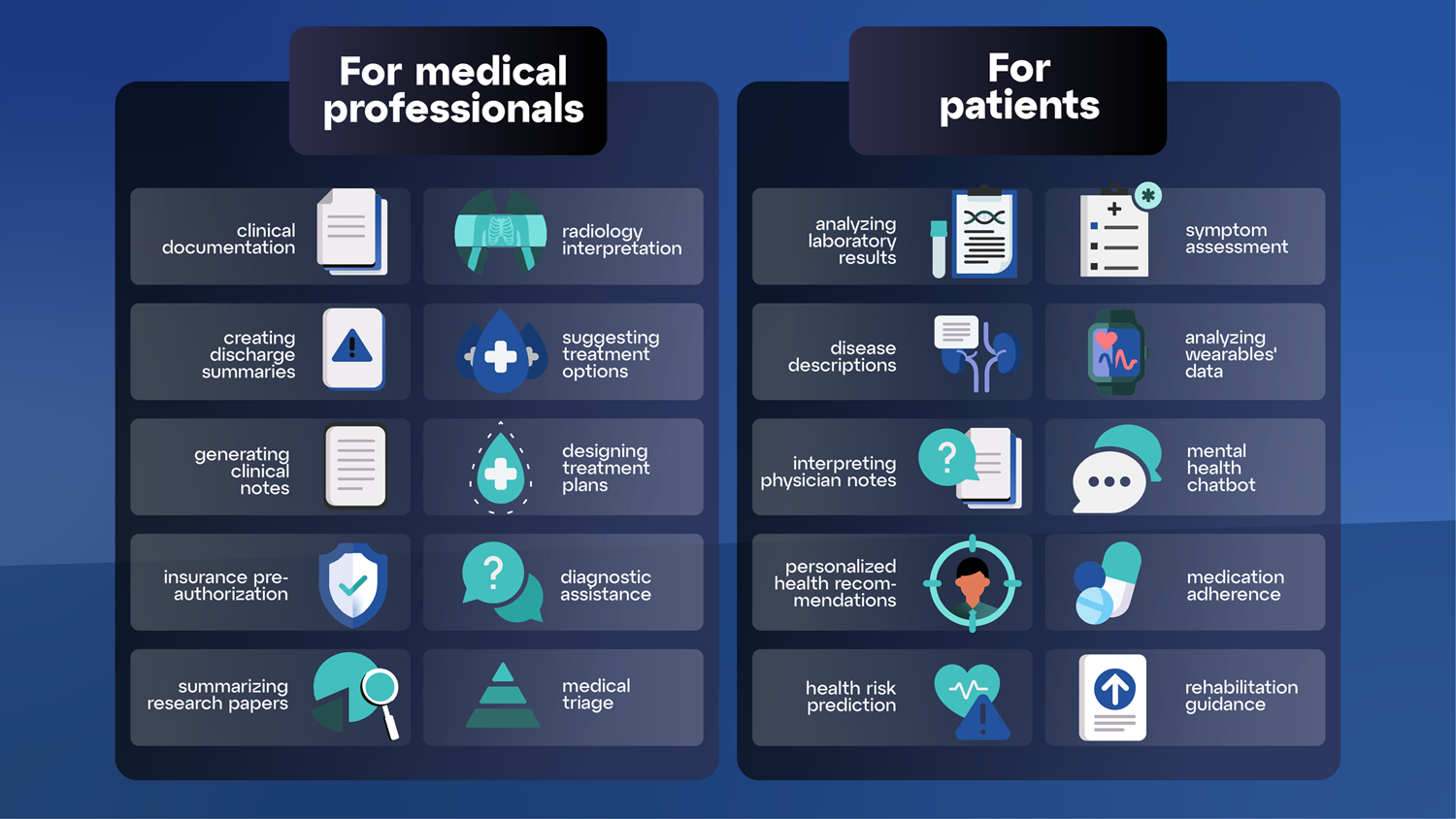In recent years, the intersection of healthcare and technology has given rise to a myriad of ethical considerations. As the use of health-tech continues to evolve, it has become increasingly important to address the ethical implications that come with it. From data privacy concerns to the impact on patient autonomy, the landscape of health-tech ethics is constantly changing and necessitates a closer examination. In this blog post, we will delve into the evolution of health-tech ethics, exploring the dawn of these principles and the emerging ethical challenges in the realm of genetic testing. We will also discuss the role of transparency in navigating these ethical considerations, as well as the delicate balance required to ensure that patient autonomy is not compromised by technological advancements. Join us as we navigate the complex and ever-changing ethical landscape of health-tech.
The dawn of health-tech ethics
In the rapidly evolving landscape of technology, health-tech is an area that has seen tremendous growth in recent years. With advancements in artificial intelligence, telemedicine, and wearable devices, the potential for improving healthcare outcomes is immense. However, along with these advancements come ethical considerations that need to be carefully addressed. The dawn of health-tech ethics signals the need for a robust framework that guides the development and implementation of these technologies in a responsible and ethical manner.
One of the primary ethical concerns surrounding health-tech is the need to protect patient privacy and data security. As more and more health-related information is collected and stored digitally, there is a growing risk of unauthorized access and misuse of this sensitive data. It is essential to establish strict ethical guidelines that dictate how patient information is handled and ensure that privacy is maintained at all times.
Another key aspect of health-tech ethics revolves around transparency and accountability. As new technologies are introduced into the healthcare system, it is crucial for developers and providers to be transparent about how these technologies work, the potential risks involved, and the measures in place to ensure patient safety. Moreover, there needs to be a clear mechanism for addressing ethical concerns and ensuring that accountability is upheld.
Furthermore, the ever-growing field of genetic testing poses unique ethical challenges that need to be carefully navigated. From the potential misuse of genetic information to concerns about informed consent and the implications of genetic testing results, health-tech ethics plays a pivotal role in ensuring that advancements in genetic testing are used responsibly and for the benefit of patients.
Ethical concerns surrounding data privacy
As technology continues to advance and becomes more integrated into healthcare, the issue of data privacy has become a primary concern. With the abundance of patient data being collected, stored, and shared across various platforms, there is an increased need for ethical considerations to ensure the protection of individuals’ sensitive information.
The use of health-tech such as electronic health records, wearable devices, and telemedicine has created new possibilities for the collection and analysis of patient data. However, this also raises ethical questions about who has access to this data, how it is being used, and whether individuals have given informed consent for its use.
At the heart of the matter is the potential for data breaches and unauthorized access to highly personal and sensitive information. As a result, there is a growing need for policies and regulations to safeguard patient data and ensure that the use of health-tech platforms is in line with ethical standards.
It is crucial for healthcare providers, technology developers, and policymakers to work together to establish clear guidelines for the collection, storage, and sharing of patient data. This includes prioritizing patient consent, implementing robust security measures, and ensuring transparency in how data is being utilized. By addressing these ethical concerns surrounding data privacy, we can foster trust in health-tech advancements while upholding the privacy and dignity of patients.
Balancing patient autonomy and technology advancements
As the healthcare industry continues to harness the power of technology, the ethical implications of integrating technology into patient care have become increasingly complex. One of the key ethical concerns is the need to balance patient autonomy with the advancements in technology. Patients should have the right to make informed decisions about their healthcare, but with the increasing reliance on technology, there is a risk of patients losing control over their own medical treatment.
Healthcare providers and tech developers must prioritize patient autonomy by ensuring that patients have access to their own health information and are actively involved in the decision-making process. Technologies such as telemedicine and wearable devices can empower patients to monitor their own health and make more informed decisions.
At the same time, it’s important to acknowledge that technological advancements can also lead to potential conflicts with patient autonomy. For example, the use of artificial intelligence in healthcare decision-making could raise concerns about bias and lack of transparency, which could ultimately undermine patient autonomy. Healthcare professionals must be vigilant in using technology as a tool to support patient autonomy, rather than allowing it to override the patient’s voice.
Ultimately, achieving a balance between patient autonomy and technology advancements requires a thoughtful and patient-centered approach. This involves creating clear guidelines and regulations that prioritize the ethical principles of autonomy, while also leveraging the benefits of technology to improve patient care.
The role of transparency in health-tech ethics
In today’s digital age, the health-tech industry is booming, with advancements in artificial intelligence, telemedicine, and wearable technology revolutionizing the way we approach healthcare. However, with these cutting-edge innovations comes the ethical responsibility to maintain transparency in how patient data is collected, stored, and utilized.
One of the key ethical concerns surrounding health-tech is the potential for misuse of patient data. Without transparency, there is a risk that personal health information could be exploited for financial gain or discriminatory practices. Therefore, it is crucial for companies and healthcare providers to be open and honest about their data collection practices, ensuring that patients are fully informed and have the opportunity to consent to the use of their information.
Transparency also plays a critical role in building and maintaining trust within the healthcare industry. Patients are more likely to engage with health-tech solutions if they have confidence that their data is being handled ethically and responsibly. By being transparent about how data is used and protected, companies can foster a culture of trust and accountability, ultimately benefiting both patients and the healthcare industry as a whole.
As the health-tech landscape continues to evolve, the role of transparency in ethics will become increasingly important. By prioritizing transparency, companies can demonstrate their commitment to maintaining ethical standards and protecting patient privacy, ultimately shaping a healthier and more responsible future for healthcare technology.
Emerging ethical challenges in genetic testing
Genetic testing has become a significant aspect of healthcare, offering a wealth of information about an individual’s genetic predispositions to diseases and conditions. However, with the rapid advancement of genetic testing technology, there are emerging ethical challenges that need to be addressed.
One of the primary ethical concerns surrounding genetic testing is the potential for privacy breaches. As more individuals undergo genetic testing, there is a growing concern about the misuse of genetic information by employers, insurers, and even law enforcement. The need to protect the privacy of genetic data has become increasingly crucial in today’s digital age.
Another ethical challenge in genetic testing is the issue of informed consent. With the complexities of genetic information, ensuring that individuals fully understand the implications of genetic testing and are able to make informed decisions about their genetic data is a critical ethical consideration.
Furthermore, the potential for discrimination based on genetic information poses a significant ethical challenge. There is a risk that genetic testing results could be used to discriminate against individuals in areas such as employment, education, and access to healthcare. This underscores the importance of implementing ethical guidelines to prevent the misuse of genetic information.
Frequently Asked Questions
What is the significance of health-tech ethics in today’s society?
Health-tech ethics play a crucial role in ensuring the responsible use of technology in healthcare, protecting patient privacy and autonomy, and addressing emerging ethical challenges in the field.
How has the dawn of health-tech ethics impacted the healthcare industry?
The emergence of health-tech ethics has led to greater awareness and conversations about the ethical implications of technology in healthcare, pushing for more responsible and transparent practices within the industry.
What are some ethical concerns surrounding data privacy in health-tech?
Some ethical concerns include the unauthorized access and use of patient data, lack of transparency in data collection and sharing practices, and the potential for data breaches and security vulnerabilities.
How can we balance patient autonomy and advancements in health technology?
Balancing patient autonomy and technological advancements involves involving patients in the decision-making processes, ensuring informed consent and clear communication about the use of technology in their care.
What role does transparency play in health-tech ethics?
Transparency is essential in health-tech ethics as it fosters trust between patients, healthcare providers, and technology developers, and allows for informed decision-making and accountability.
What are some emerging ethical challenges in genetic testing?
Some emerging challenges include issues related to consent and privacy, the potential for genetic discrimination, the accuracy and interpretation of genetic information, and the ethical implications of gene editing technologies.






